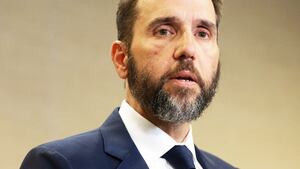The federal judge overseeing the case against Donald Trump regarding his alleged mishandling of classified documents agreed on Tuesday to keep potential witnesses for the government from being identified in court filings.
The decision by U.S. District Court Judge Aileen Cannon had long been sought by Special Counsel Jack Smith, with prosecutors arguing that a failure to hide the identities of witnesses would put them at risk.
In her 24-page order on Tuesday, the judge said though Smith’s request “remains sweeping in nature,” she was “satisfied that the Special Counsel has made an adequate showing on this issue,” at least for now. She directed Smith to file an index of potential witnesses under seal, with each name accompanied by a corresponding pseudonym.
The decision marks only a partial victory for Smith’s office, however, with the judge refusing to grant a “wholesale” request to keep substantive witness statements under wraps, as long as they don’t identify the witness or others on the list.
Cannon didn’t miss an opportunity to take a swipe at Smith in the order, either, criticizing him and his prosecutors for not filing their evidence quickly enough.
“Although the record is clear that the Special Counsel could have, and should have, raised its current arguments previously, the Court elects, upon a full review of those newly raised arguments, to reconsider its prior Order,” she noted pointedly.
The monthslong dispute over redaction began when Trump’s lawyers pushed to be able to name government witnesses in court papers they filed in relation to discovery evidence. In a ruling on the matter last summer, Cannon had sided against prosecutors, saying they hadn’t adequately explained their reasons for wanting the redaction.
Prosecutors urged Cannon to reconsider, saying in a February filing that she had made a “clear error,” and that there was “a well-documented pattern in which judges, agents, prosecutors and witnesses involved in cases involving Trump have been subject to threats, harassment and intimidation.”
The former president, who faces 37 counts in the case, has pleaded not guilty to illegally retaining the classified documents. He and his two co-defendants, Walt Nauta and Carlos De Oliveira, have also pleaded not guilty to obstructing the government’s attempts to retrieve the records.
The trial does not have a set start date, with the case, being heard in Fort Pierce, Florida, having gotten mired in a tangle of unresolved motions and legal issues. It is one of four criminal indictments pending against Trump.








